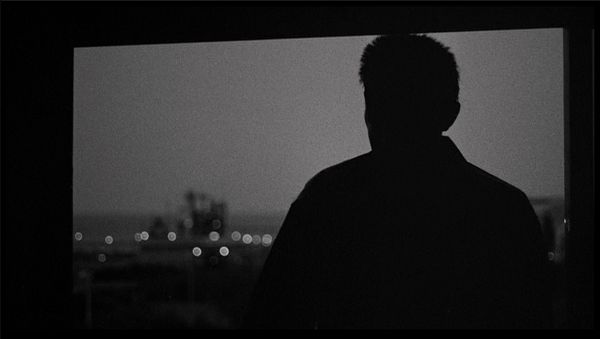Rome and its Mussolini-founded Cinecittà Studios may have been the center for much of Italian cinema's Età d'Oro, or Golden Age, in the early 20th Century. But the country's economic boom during the 50s and early 60s changed all that, influencing not only the film industry but also the content of its output. Social values were transformed, and rather than survival, Italians worried about making a quick buck. So did the North suddenly take on a greater role, as Italians began flocking towards it in search of work.
"I Fidanzati, aside from being a long distance love story, is also a meditation on life in the south of Italy."
The films of Ermanno Olmi carry on the Neorealist tradition founded during the immediate post-World War II period, in which non-actors and real-life locations were used to portray the landscape and people of war-torn Italy. But Olmi applies this tradition to the aforementioned period of economic growth, often with satirical purposes. In 1961’s Il Posto, for example, he dramatizes the exposure of a bewildered adolescent to the facelessness of corporate life in Milan, whereas in 1963’s I Fidanzati, he reverses this by sending a skilled factory worker from the North to the island of Sicily on an eighteen-month welding placement.

I Fidanzati, aside from being a long distance love story, is also a meditation on life in the south of Italy. A man pushes a rubber ring down a bumpy street still wet with morning rain, a landlady eavesdrops from the safety of a door's shadow, a mangy-looking dog causes shrieks of laughter during a school church service: these are moments that say a great deal about the slower pace of life down there, as opposed to the frenetic, seemingly endless surge of development that pervades Milan in Il Posto. Olmi captures all of these moments through the eyes of his gentle protagonist Giovanni. The film opens on a dance hall, which is seemingly empty until we notice the muted couples seated at tables against each wall. Salt is thrown down to ensure people don’t slip over, before the tardy pianist flicks on a cigarette and begins to play. One by one, couples take to the dance floor, clumsily waltzing away to an enthusiastic yet oddly Eastern jangle. It is a scene that sets the tone for the entire film, as those who remain stationary look at those in motion, while the lovers purposefully avoid each other's eye.
"The rough, often incomprehensible Southern drawl heard in I Fidanzati is quite unlike the crisp, curt language of the industrial north"
The rough, often incomprehensible Southern drawl heard in I Fidanzati is quite unlike the crisp, curt language of the industrial north, and Giovanni – both curious and eager, yet somewhat cynical and not exactly a youngster – is a stranger in a strange land, who longs for his fiancée back home. We are immediately aware, with just one look at his cautious expression, of his uncertainty and pain.





